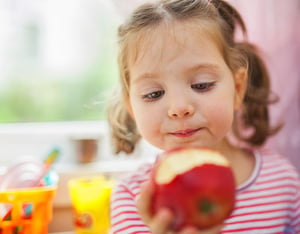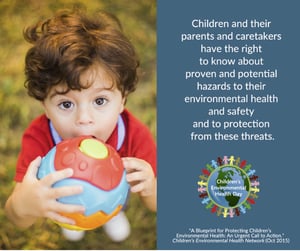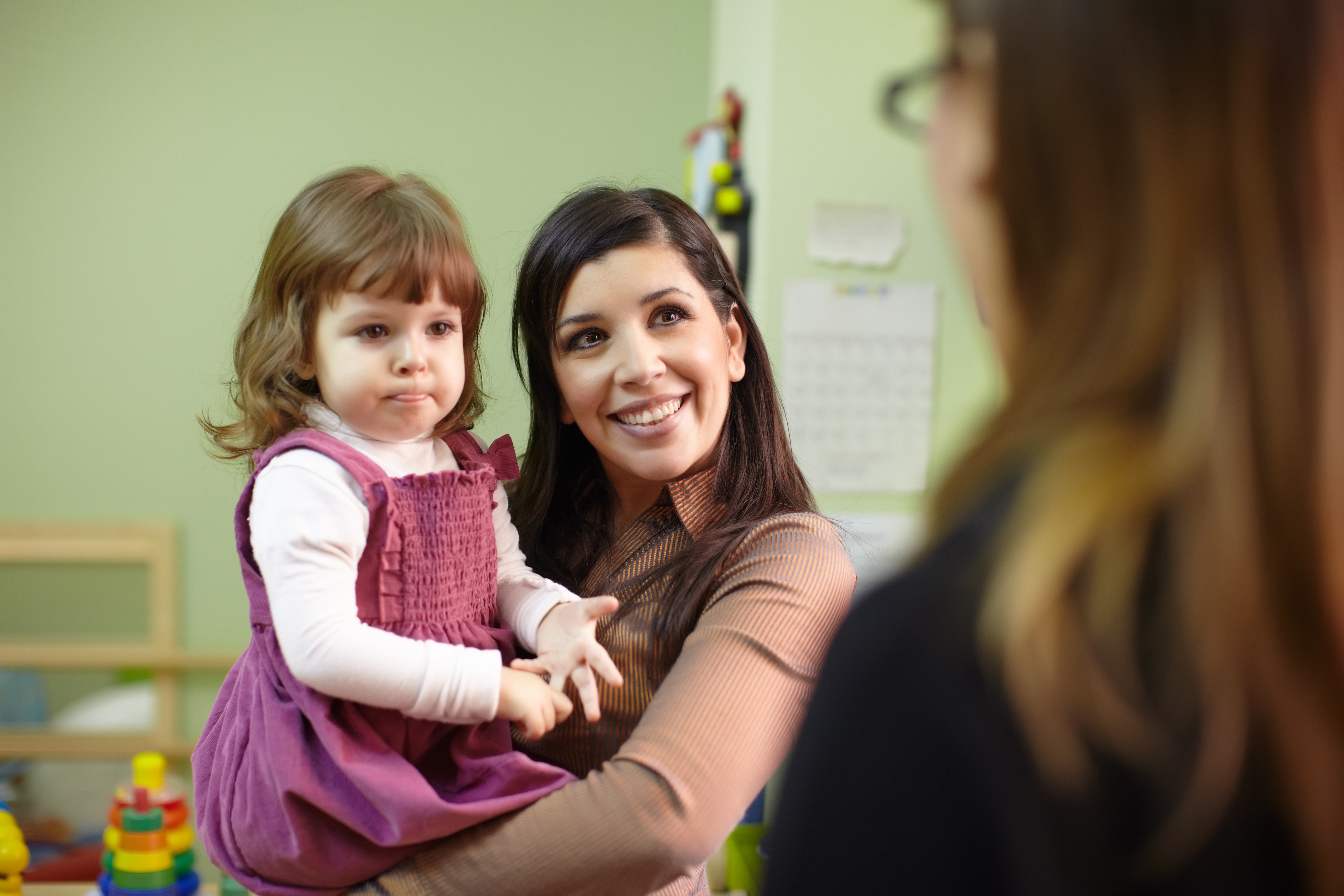 Now more than ever, the need to protect the health of the most vulnerable among us is paramount. Children are our most valuable resource—they represent the very future of our nation. Yet over the past few decades children have faced increasing rates of chronic illness and developmental issues linked to environmental exposures and our changing climate:
Now more than ever, the need to protect the health of the most vulnerable among us is paramount. Children are our most valuable resource—they represent the very future of our nation. Yet over the past few decades children have faced increasing rates of chronic illness and developmental issues linked to environmental exposures and our changing climate:
- More than 6 million schoolchildren in the United States receive special education services
- In 2014, the Centers for Disease Control and Prevention estimated that one in 68 children have been diagnosed with an autism spectrum disorder—a 30% increase over the 2012 estimate
- Asthma rates for black children rose by almost 50 percent between 2001 and 2009
- One in five school-aged children has obesity
- The incidence of childhood cancers has been increasing slightly over the past few decades
Decidedly few health and developmental problems are attributable solely to genetics, and mounting research underscores the importance of clean air, clean water, safe food and products, and healthy places for a child to get the best start in life. Yet the nation’s current legal, policy, and physical infrastructures are woefully inadequate to safeguard children’s environmental health, and the need for robust and united advocacy for preventive actions is profound.
As a means to promote and anchor a children’s environmental health movement and to activate a strong network of advocates, the Children’s Environmental Health Network established Children’s Environmental Health Day (CEH Day), to be celebrated every second Thursday of October during Children’s Health Month. This year’s CEH Day is TODAY, October 12.

CEH Day is a day of awareness, and a day of action. Anyone can show their commitment to protecting and improving children’s environmental health by:
- Endorsing CEH Day
- Obtaining a City or State Proclamation of CEH Day
- Sharing a personal story for our narrative
Working together, we can safeguard the health of our children and that of future generations.
How will you stand up for children’s environmental health?
Child care providers have the unique opportunity and responsibility to protect each young child’s overall health and well-being. It is essential that we all work together to prevent children’s exposures to lead, mercury, unsafe plastics, toxic art supplies, formaldehyde in furniture, arsenic in water and treated wood, and chemicals in household cleaners. Already, tens of thousands of new, mostly man-made chemicals have been added into consumer goods and released into our environment. These chemicals are present in our indoor and outdoor air, water, soil, food, consumer products (baby bottles, sippy cups, and toys!), and furnishings. Research clearly demonstrates that young children are especially vulnerable to toxic exposures: their bodies are still developing, and some of their behaviors such as crawling and putting objects in their mouths increase their exposure.
The Eco-Healthy Child Care® (EHCC) program provides low- to no-cost best practice suggestions that help reduce and/or prevent a child’s exposure to toxicants. By complying with a minimum of 24 out of 30 EHCC practices, a child care facility qualifies as “Eco-Healthy.” This two-year endorsement, available to both centers and family child care programs, is a great way to inform parents and fellow providers of the eco-healthy practices that your program is implementing. Use EHCC’s checklist to determine what changes need to be made in your facility so that you can achieve the “eco-healthy” endorsement; these changes will immediately benefit the well-being of the children in your care.
 Eco-Healthy Child Care® (EHCC) is a national program managed by the Children’s Environmental Health Network that partners with child care professionals to eliminate or reduce environmental health hazards found in and around child care facilities. Join our EHCC Friends email list. You can also connect with us on Facebook.
Eco-Healthy Child Care® (EHCC) is a national program managed by the Children’s Environmental Health Network that partners with child care professionals to eliminate or reduce environmental health hazards found in and around child care facilities. Join our EHCC Friends email list. You can also connect with us on Facebook.
 The Children’s Environmental Health Network (CEHN) is a national, multidisciplinary, nonprofit organization devoted to protecting the developing child from environmental health hazards and promoting a healthier environment. CEHN works to achieve this mission by stimulating and supporting preventive science, advocating for sound, child-protective policy, providing education and training to a variety of audiences, and raising awareness of children’s environmental health issues.
The Children’s Environmental Health Network (CEHN) is a national, multidisciplinary, nonprofit organization devoted to protecting the developing child from environmental health hazards and promoting a healthier environment. CEHN works to achieve this mission by stimulating and supporting preventive science, advocating for sound, child-protective policy, providing education and training to a variety of audiences, and raising awareness of children’s environmental health issues.





